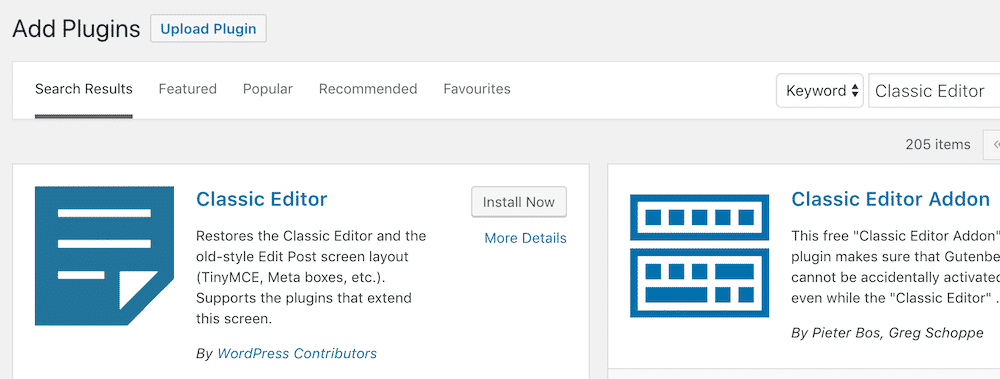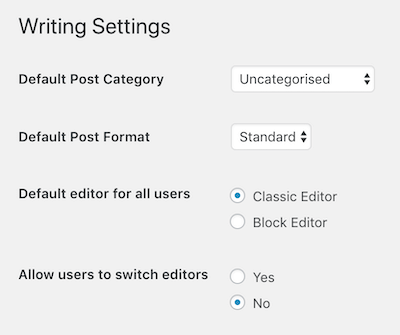Using Gutenberg and/or the Classic Editor
It’s common knowledge that WordPress’s new editor, codenamed Gutenberg, will shake up the landscape for many, many websites that use the awesome platform.
For some of us it’s a welcomed step for WP, however, for others, it is not. Yet.
For Web agencies and freelance developers this is just a hurdle (albeit a potentially big one), but for clients that love the old setup, this is a much bigger challenge (as clients come first).
Why do our clients love the old editor?
This is simple. For many of our clients, we’ve built templates that control the flow of content that they need to provide for each page/custom post type. This gives them the confidence that they will not break the site’s design, SEO performance and so on.
By providing an environment with structured editing parameters we can keep their site looking and performing as it was designed to do. So embracing Gutenberg in a way that doesn’t break this flow will take some time to figure out in a considered way.
For this reason, many of our clients will be sticking with the old editing experience for the time being. At least for pages and custom post types.
How to keep the “Classic Editor”
The old editor (known now as the “Classic Editor”) isn’t going anywhere, just yet, as WordPress is officially supporting it until 2022. So there’s no need to send all your clients into a spin until you’ve figured out a solution that meets their needs.
To use the old editor, and keep everything acting as it previously has, simply download the plugin from the official WordPress plugins repository. The easiest way to do this is via composer (from the site’s root directory):
$ composer require wpackagist-plugin/classic-editor
$ wp plugin activate classic-editor
Or, through the site’s WP admin, Plugins > Add New and search for Classic Editor:

Then install and activate it.

Now your clients are all set up to continue using WordPress as they did prior to version 5.0.
When should I switch to Gutenberg?
Personally, I think this depends on numerous variables;
- does the client like what they currently have and not want to change?
- do you push changes to all sites, therefore need one flow for all?
- do all the plugins that you use fully support Blocks?
- do the clients have the budget to back custom solutions with Blocks?
We aim to move all clients over at the earliest opportunity, but this doesn’t mean we’ll have them all using the new Editor at the same time, our object is to have everyone catered for long before WordPress drops support for the Classic Editor.
If you’re looking for assistance with migrating to the new editor get in touch and we’ll see what we can do to help.